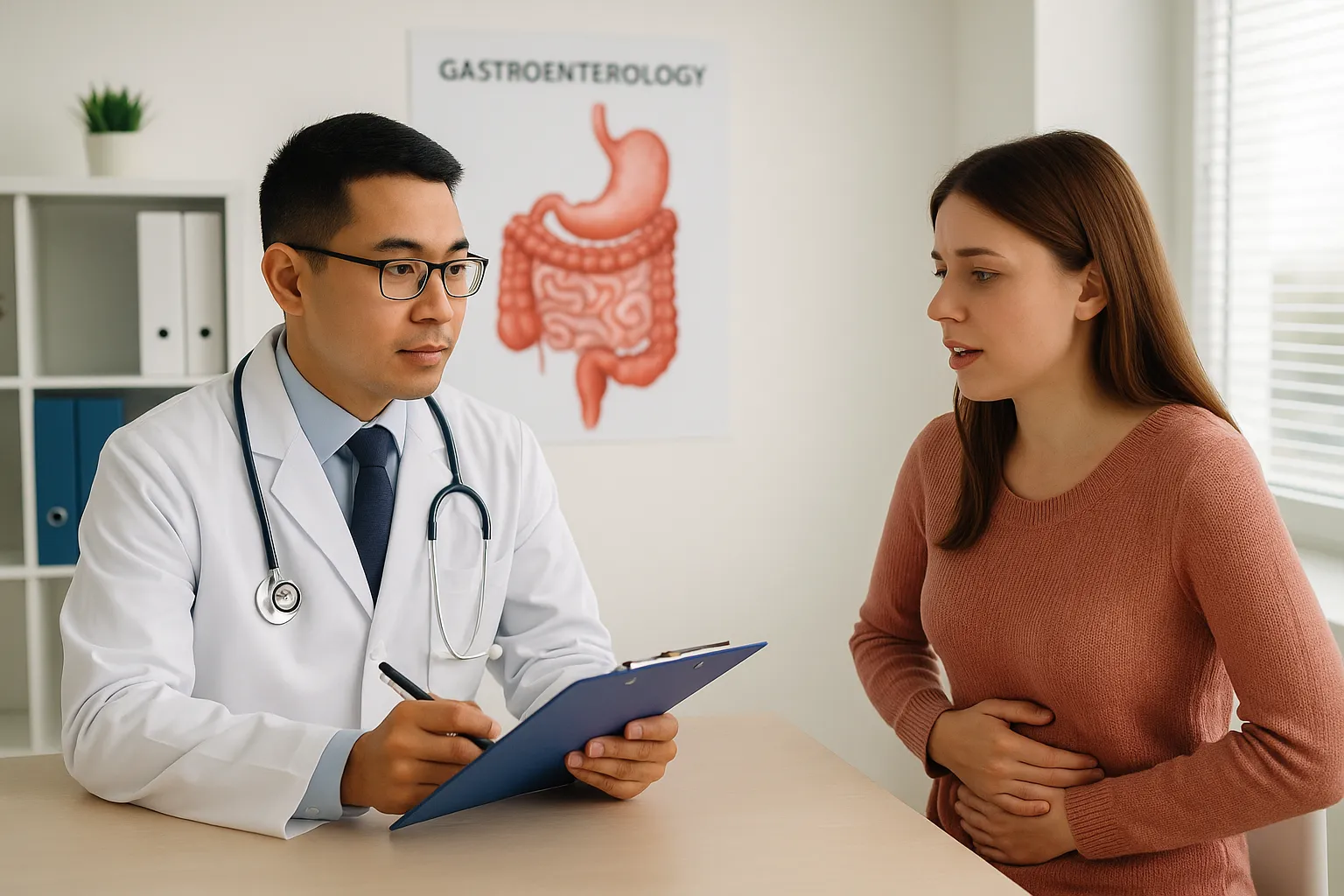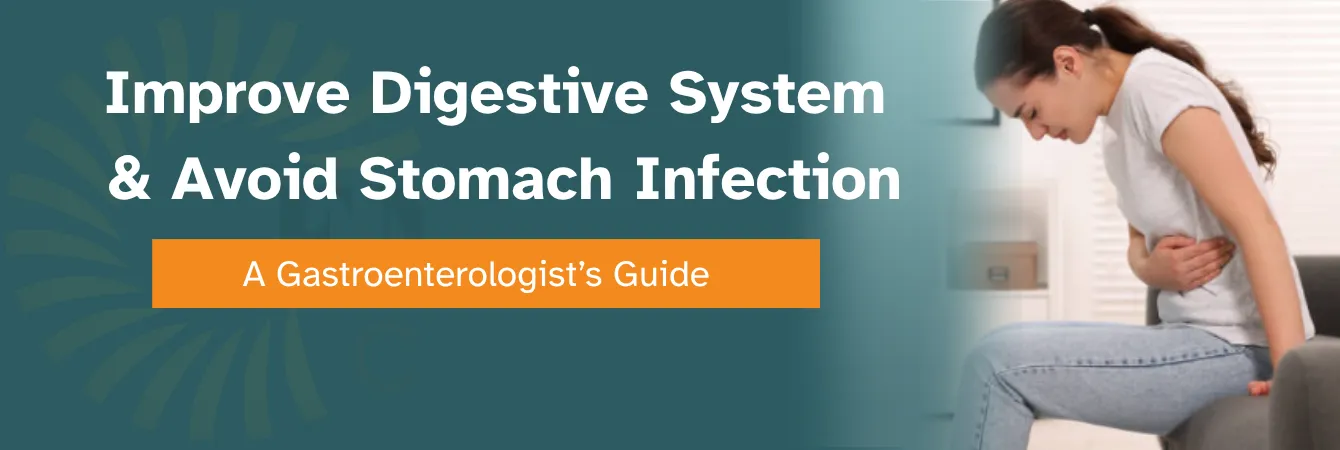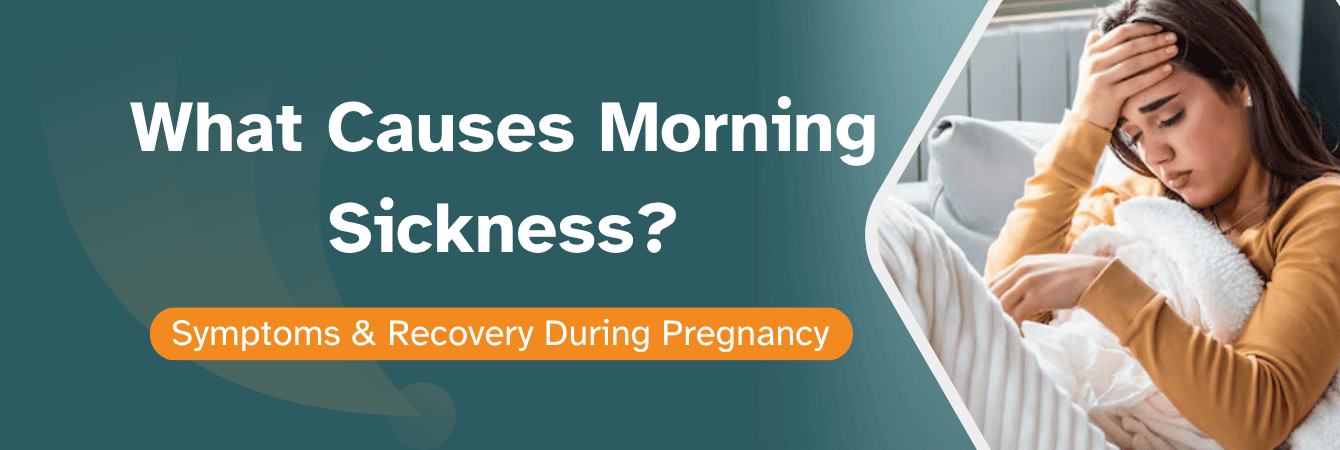Effective Ways to Improve Your Digestive System and Avoid Stomach Viruses with Gastroenterologist Tips
- July 15, 2025
- Abrol Hospital
Your digestive system is responsible for turning the food you eat into nutrients your body needs and eliminating waste. However, in today’s world, issues like stomach viruses, poor diet, stress, and infections frequently disrupt the normal function of this system. These disturbances can result in bloating, indigestion, constipation, and even chronic conditions.
Viral gastroenteritis (stomach flu) is one such challenge, affecting millions globally. It spreads easily and often causes diarrhea, cramps, vomiting, and fatigue. But the good news is that digestive health can be strengthened through diet, hygiene, habits, and timely consultations with a gastroenterologist—a specialist for your digestive tract. This guide covers everything you need to know to improve digestion and avoid stomach-related infections naturally and effectively.
The human digestive system is a complex network that processes food into nutrients for energy, growth, and cell repair. Unfortunately, poor eating habits, lifestyle factors, and exposure to harmful pathogens can disrupt the system, leading to uncomfortable or serious health issues. Among these concerns, stomach infections caused by viruses or bacteria are some of the most common.
Understanding the Digestive System
The digestive system is a complex network of organs responsible for breaking down food, absorbing nutrients, and eliminating waste. It starts at the mouth and includes the esophagus, stomach, liver, pancreas, small intestine, large intestine, and ends at the rectum. Each organ has a unique role—for example, the liver produces bile to break down fats, while the pancreas releases enzymes to digest proteins and carbohydrates. When functioning well, this system ensures you get the vitamins, minerals, and energy your body needs to thrive.
How Digestion Works – A Simple Breakdown
Digestion begins in the mouth, where enzymes in saliva start breaking down carbohydrates. The food then travels through the esophagus to the stomach, where gastric acid and enzymes further digest proteins. The partially digested food enters the small intestine, where the pancreas and liver contribute more enzymes and bile to complete the digestive process. Nutrients are absorbed through the intestinal walls and transported into the bloodstream. Remaining waste moves into the large intestine, where water is reabsorbed before it is excreted.
Common Digestive Issues People Face
Millions of people experience digestive discomfort daily. Common problems include bloating, gas, acid reflux, irritable bowel syndrome (IBS), constipation, and gastritis. Many of these issues stem from poor dietary choices, stress, lack of exercise, or even medications. Understanding these issues can help you take proactive steps to manage or prevent them before they become chronic.
The Link Between Digestion and Immunity
A healthy digestive system plays a significant role in your immune defense. About 70% of your immune cells reside in the gut lining, and beneficial bacteria, known as probiotics, help prevent harmful pathogens from entering the bloodstream. A well-balanced gut supports the production of immune cells and signaling molecules that protect against infections.
How an Unhealthy Gut Makes You Vulnerable to Infections: When your gut microbiome is imbalanced—a condition known as dysbiosis—your body becomes more susceptible to infections and inflammation. This can occur due to antibiotic overuse, stress, poor diet, or exposure to harmful bacteria and viruses. An unhealthy gut may allow viruses to cross the gut barrier, leading to more frequent illnesses and slower recovery.
What Are Stomach Viruses?
Stomach viruses, also known as viral gastroenteritis, are caused by viruses like norovirus, rotavirus, and adenovirus. These viruses inflame the stomach and intestines, leading to digestive disturbances. Norovirus is the most common and spreads rapidly in crowded places, while rotavirus mainly affects children.
Symptoms and Early Signs of Infection
Typical symptoms include nausea, vomiting, watery diarrhea, abdominal cramps, and sometimes fever and body aches. These signs usually appear suddenly and can last from a day to several days. Early detection can help in managing the symptoms more effectively.
How Stomach Viruses Spread: Stomach viruses are extremely contagious and spread through contaminated food, water, surfaces, or close contact with infected individuals. Poor hand hygiene and improper food handling are the primary culprits, making prevention crucial in high-risk environments.
Effective Ways to Boost Digestive Health
Eat More Fiber (But the Right Kind): Fiber is essential for digestive health, but not all fibers are created equal. Soluble fiber, found in oats, legumes, and apples, forms a gel-like substance in the gut, helping regulate blood sugar and cholesterol. Insoluble fiber, present in whole grains and vegetables, adds bulk to stool and promotes regular bowel movements. A balanced intake of both types keeps your digestive system running smoothly.
Hydration: The Unsung Hero of Digestion: Water aids in breaking down food so that your body can absorb nutrients. It also softens stool, preventing constipation. Aim to drink at least 8–10 glasses of water a day. In hot weather or when active, increase your intake to compensate for fluid loss.
Eat Fermented Foods for Gut Flora: Fermented foods like yogurt, kefir, kimchi, sauerkraut, and miso are rich in probiotics, the good bacteria that support your gut health. These foods help maintain the balance of your intestinal flora, reduce inflammation, and even improve mental health through the gut-brain axis.
Don’t Skip Probiotics and Prebiotics: Probiotics are live beneficial bacteria, while prebiotics are food for those bacteria. Together, they support a thriving gut microbiome. Include foods like garlic, onions, asparagus, and bananas for prebiotics, and consider a high-quality probiotic supplement if recommended by a healthcare provider.
Avoid These Common Digestive Offenders: Stay away from highly processed foods, excessive sugar, fried items, artificial sweeteners, alcohol, and too much caffeine. These disrupt your gut bacteria, irritate your stomach lining, and contribute to inflammation, bloating, and poor digestion.
Gastroenterologist-Recommended Tips
Regular Meal Timings: Irregular eating patterns can confuse your digestive system. Eating at consistent times trains your gut to release digestive enzymes and acids more effectively. This improves digestion and nutrient absorption while minimizing issues like bloating or acid reflux.
Reduce Stress – Your Gut Can Feel It Too: The gut-brain connection means stress can directly impact your digestive system. Chronic stress affects the movement and contractions of your GI tract, often leading to IBS, ulcers, or decreased immune function. Practice stress-reducing activities like yoga, meditation, or deep breathing exercises daily.
Limit Overuse of Antibiotics and Painkillers: While necessary in some cases, frequent use of antibiotics and NSAIDs (nonsteroidal anti-inflammatory drugs) can damage your gut lining and disrupt beneficial bacteria. Always use such medications under medical supervision and consider taking probiotics during or after antibiotic treatment.
Importance of Regular Gut Check-Ups: Routine check-ups with a gastroenterologist can detect early signs of chronic conditions like ulcers, GERD, Crohn’s disease, or infections like H. pylori. Early intervention leads to better outcomes and can prevent serious complications.
When to See a Gastroenterologist: Symptoms That Shouldn’t Be Ignored
If you’re experiencing ongoing digestive issues like chronic constipation, diarrhea, bloating, unexplained weight loss, fatigue, or blood in the stool, it’s time to consult a gastroenterologist. These could signal underlying conditions needing targeted treatment. A gastroenterologist may recommend tests such as endoscopy , colonoscopy , stool analysis, and blood work to evaluate for inflammatory markers or nutritional deficiencies.

FAQs About Kidney Stones Symptoms
Practice proper hygiene, especially handwashing. Eat immune-supporting foods like garlic, ginger, turmeric, and yogurt. Avoid sharing utensils or food in public places, sanitize surfaces, and keep your gut flora strong with prebiotics and fermented foods.
A 24-hour fast followed by fiber-rich, probiotic-enhanced meals (like bone broth, fermented veggies, and whole grains) can help reboot digestion—always consult a doctor first.
Absolutely. The gut-brain axis links digestive imbalances to mood swings, anxiety, and brain fog. A healthy gut microbiome supports mental clarity and emotional well-being .
Avoid dairy, high-fat foods, caffeine, spicy dishes, alcohol, and anything too fibrous. Stick to bland, easy-to-digest items like rice, bananas, applesauce, toast (the BRAT diet), clear soups, and electrolyte-rich fluids until symptoms improve.
Clear fluids, coconut water, electrolyte drinks, ginger tea, and chamomile tea help replenish fluids, ease nausea, and support gut recovery.
No. Stomach viruses are caused by viruses, not bacteria, so antibiotics are ineffective. Overuse of antibiotics can harm your gut flora and worsen symptoms. Focus on hydration, rest, and symptom relief unless a bacterial infection is confirmed.




